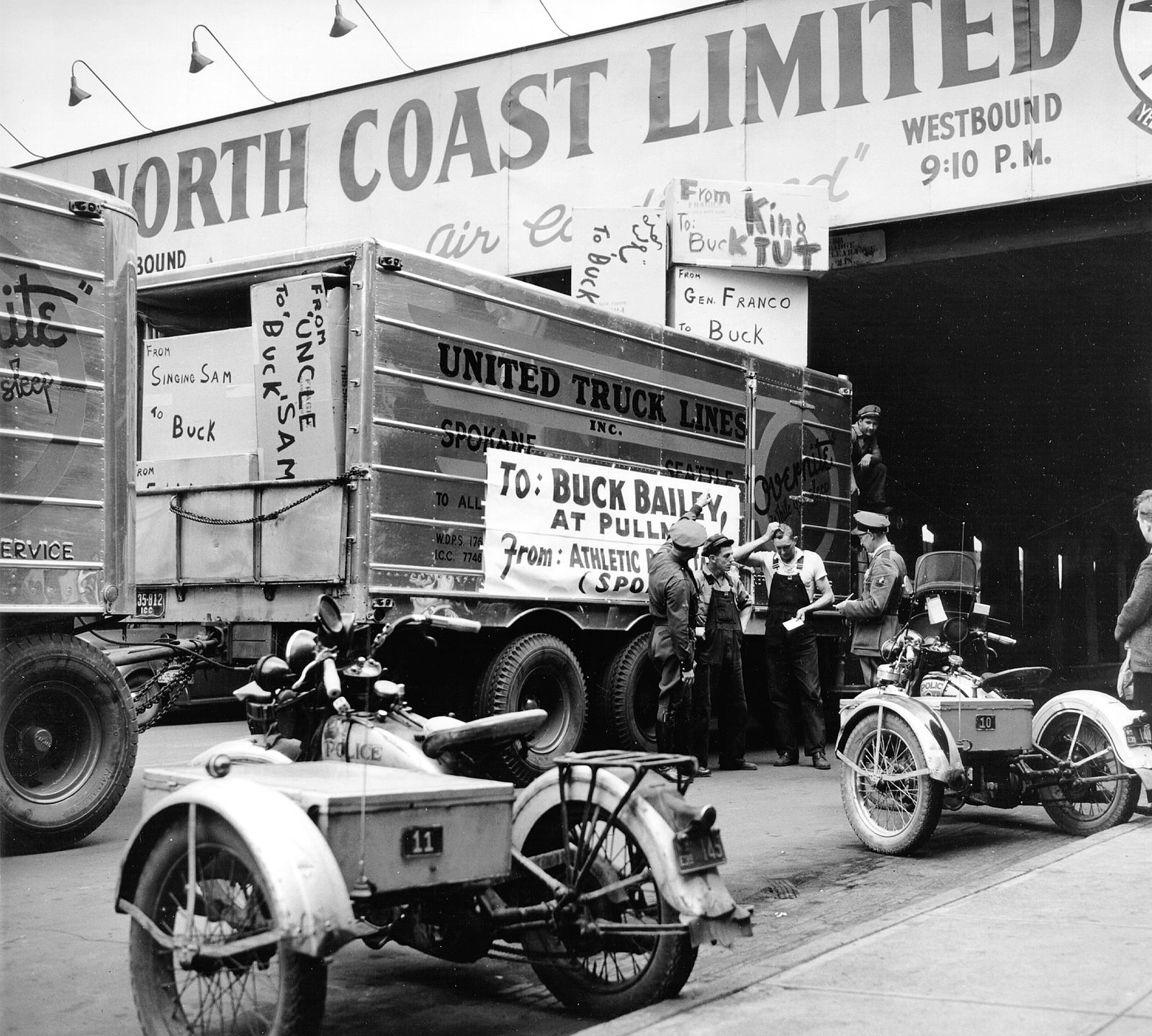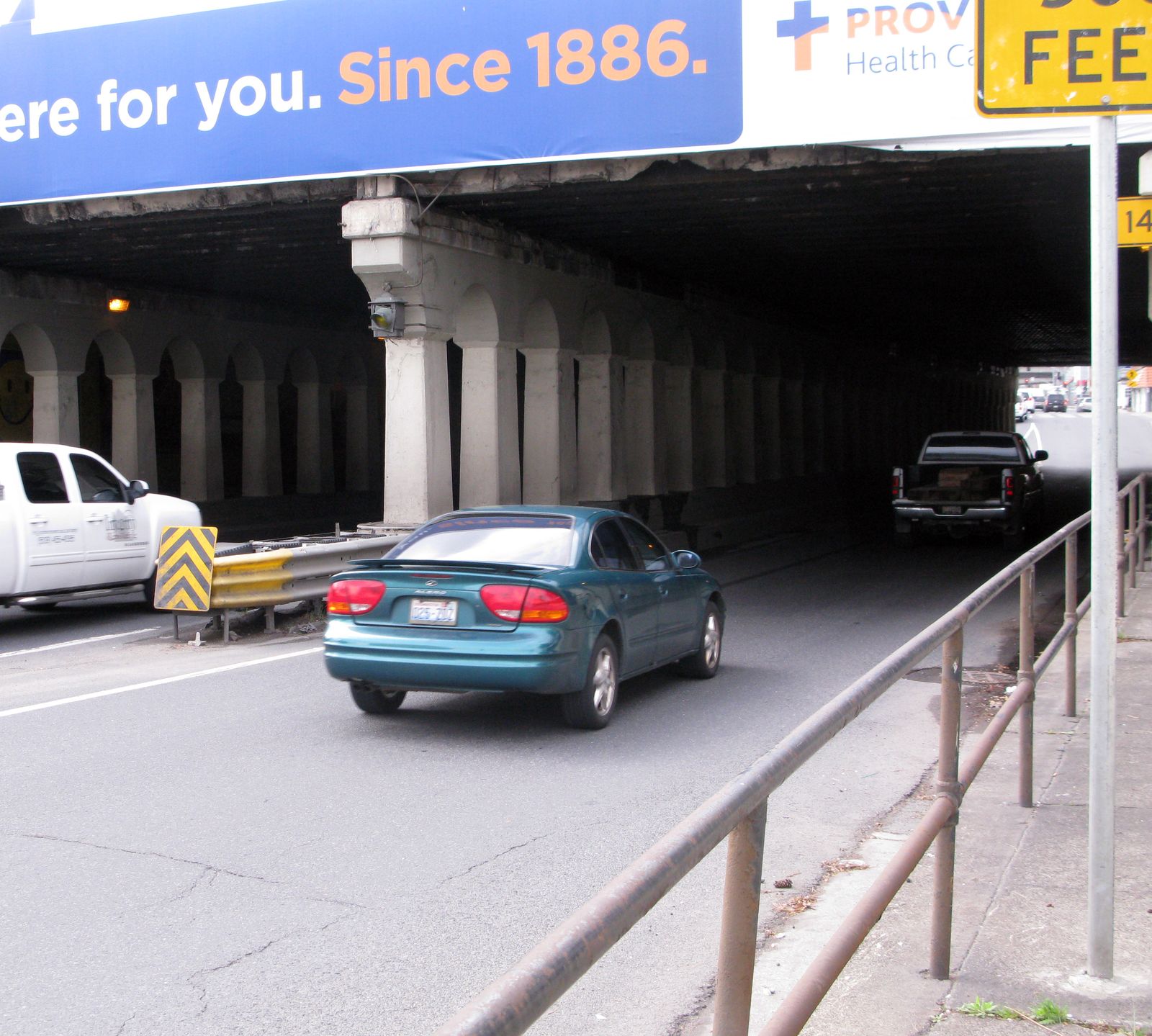
1939 "Send Bailey a Hat" campaign
The Spokane Athletic Round Table, a club of sports boosters started in 1920, began using proceeds from slot machines for youth and college sports programs. Members met over whiskey and cigars weekly at their own club for most of 36 years. Joseph Aloysius Albi, a fast-talking trial attorney who always had a joke up his sleeve, led the group from 1920 until 1962. Through the years he conspired with other “knights” of the Athletic Round Table, like Ray “Doc” Mauro of Gonzaga, to pull zany pranks, poke fun and raise funds to help underprivileged kids.
Section:Then & Now
The Spokane Athletic Round Table, a club of sports boosters started in 1920, began using proceeds from slot machines for youth and college sports programs. Members met over whiskey and cigars weekly at their own club for most of 36 years. Joseph Aloysius Albi, a fast-talking trial attorney who always had a joke up his sleeve, led the group from 1920 until 1962. Through the years he conspired with other “knights” of the Athletic Round Table, like Ray “Doc” Mauro of Gonzaga, to pull zany pranks, poke fun and raise funds to help underprivileged kids. In 1939, baseball coach Buck Bailey of Washington State College was getting married and heading off on his honeymoon. Bailey was famous for stomping on his hat when he disputed a call, so the “knights” put out a call to “send Bailey a hat.” Trucks of all kinds pushed dozens of boxes into the yard at Bailey’s little house in Pullman. When Buck carried his new wife, Frances, across the threshold of their home, the lawn was piled with boxes. Phony return addresses said that the used, tattered hats came from General Franco, King George, Franklin Roosevelt and boxer “Two-Ton” Tony Galento, among others. Bailey estimated that he received 27,000 hats. Albi organized golf tournaments where spectators were invited to throw firecrackers at the golfers. In 1942, the club launched another campaign with a national theme. After congress voted themselves a new pension plan in 1942, just weeks after the Pearl Harbor attack, Albi and his buddies started the “Bundles for Congress” campaign. They collected mock charity donations for their congressmen and senators. People from many states sent old clothing, false teeth, and wooden legs . But before trucks rolled out for D.C., the club decided to use the trucking fee to buy war bonds. But not before the campaign was in the news from coast to coast and congress did an about-face. On a more serious note, the Round Table started Mother-in-Law Day in 1943 to celebrate the women who often cared for children as men went off to war and mothers went to work in the wartime factories. The Art Appreciation League once chided Albi that the ART devoted too much attention to sports, so Albi set up a black-tie art reception. He hired a string quartet to play and unveiled replicas of famous paintings with the faces replaced by the face of Esmeralda, the club’s cartoon horse mascot. When slot machines were outlawed in 1952, the Round Table raised money through bingo games and other fundraisers. Over the years, the group put more than six million dollars into Memorial Stadium, which is now Joe Albi Stadium; the Spokane Coliseum, Esmeralda Golf Course, tennis courts, playgrounds, swimming pools and scholarships. Albi died of Lou Gehrig’s disease in 1962, but the Round Table continued to raise and distribute money for sports programs. The group died out several years ago.
Share on Social Media

